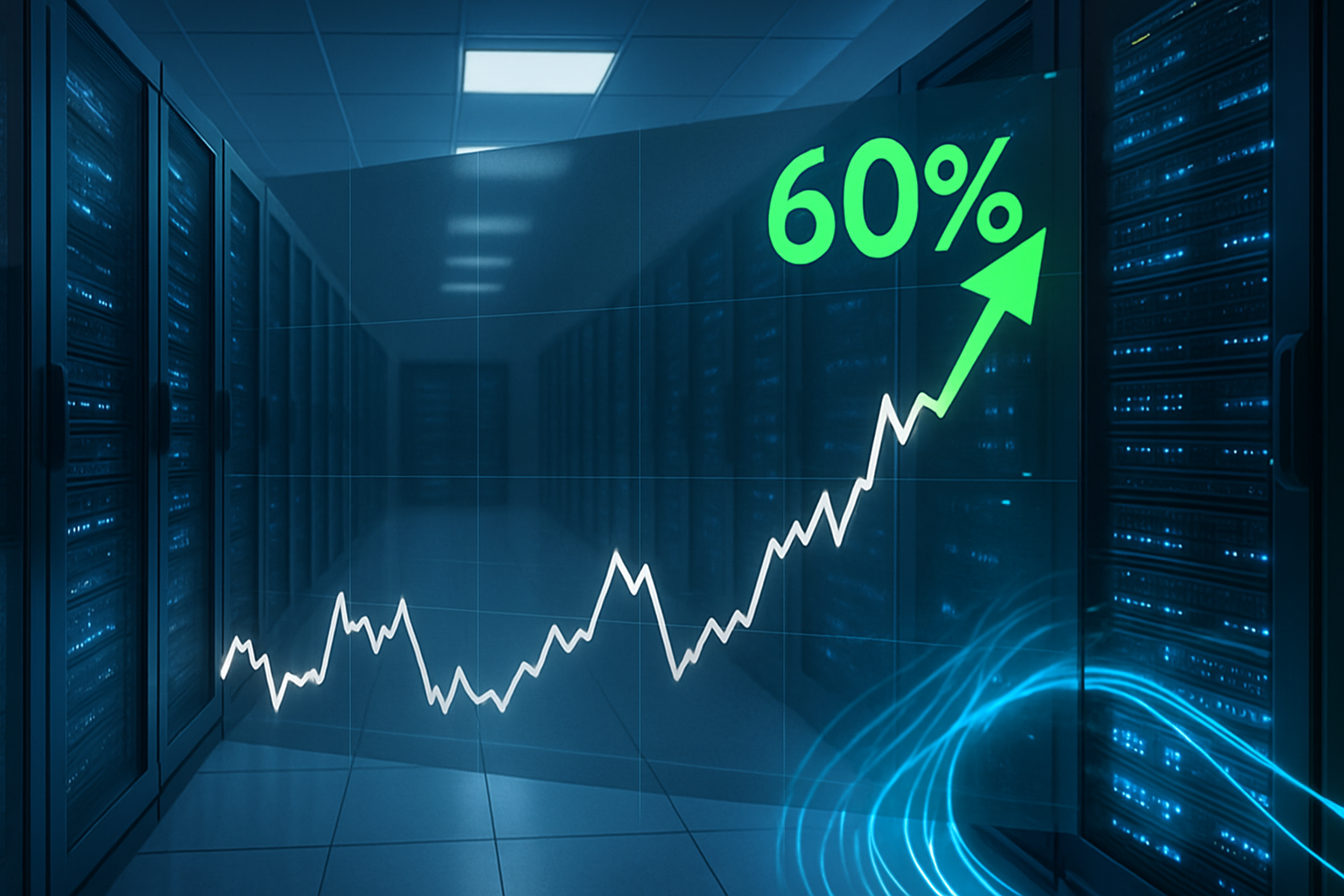In the perpetually overheated world of tech, sometimes the company nobody was watching suddenly becomes the only one everyone can talk about. That's exactly what happened with Nebius yesterday, when its stock catapulted a staggering 60% in after-hours trading following the announcement of a $17.4 billion AI infrastructure deal with Microsoft.
Let's be honest—before this news broke, most Wall Street analysts probably couldn't have picked Nebius out of a corporate lineup if their year-end bonuses depended on it.
The five-year agreement positions this relative unknown as a crucial supplier of AI computing infrastructure at precisely the moment when every tech giant is desperately throwing money at the problem of securing enough computing power for their increasingly hungry AI models. It's like watching a sudden run on high-end graphics cards, except with billion-dollar purchase orders instead of disappointed gamers.
What's particularly telling about this deal isn't just its size—though $17.4 billion would make anyone's head spin—but what it reveals about the current state of the AI economy. Having covered the enterprise tech space for nearly a decade, I've never seen anything quite like the infrastructure land grab we're witnessing now.
"This represents a fundamental shift in how tech giants approach their computing needs," explained Sarah Winthrope, chief analyst at Morgan Technology Partners, when I spoke with her this morning. "They're no longer just buying services. They're essentially reserving capacity years in advance."
Microsoft's willingness to commit such an eye-watering sum reveals the existential anxiety driving major tech players right now. Nobody—not even cash-rich Microsoft—wants to be caught without enough computing horsepower when their competitors are training increasingly sophisticated AI models.
The structure of the deal deserves special attention. Rather than the typical pay-as-you-go approach that dominated cloud computing's early days, Microsoft is essentially buying futures contracts on computing power. They're saying, "We need this much capacity, guaranteed, for five years, and we'll pay whatever it takes."
(If that doesn't illustrate how critical AI infrastructure has become, I'm not sure what would.)
For Nebius, this represents both an extraordinary opportunity and a potential trap. The company now has guaranteed revenue stretching half a decade—a luxury few tech firms ever enjoy. But what happens when the current supply crunch inevitably eases?
"They've got a five-year runway to figure out their next act," noted venture capitalist Thomas Chen at Altitude Partners. "The smart play would be using this windfall to build proprietary technology that keeps them relevant after more competitors enter the space."
The history of tech is littered with companies that briefly held the keys to the kingdom during supply shortages, only to fade into obscurity once the market normalized. Remember Fusion-io? SanDisk eventually acquired them for a fraction of their peak valuation after their flash storage advantage evaporated.
Yesterday's stock surge also highlights the almost religious fervor currently surrounding AI infrastructure plays. Wall Street is throwing money at anything remotely connected to the picks and shovels of the AI gold rush. Profitability? Growth trajectory? Traditional metrics seem almost quaint when AI is involved.
I bumped into a hedge fund manager friend at a conference last week who put it bluntly: "We're not investing based on current fundamentals—we're betting on who controls the critical resources for the next computing platform."
This morning, several analysts upgraded Nebius, with price targets suggesting another 20-30% upside from even the after-hours elevated price. That's either tremendous confidence or a textbook example of analyst FOMO. Possibly both.
For Microsoft, this move underscores how dramatically the AI race has changed traditional power dynamics in tech. The company that once functioned primarily as a provider of infrastructure and platforms is now scrambling to secure its own supply chains.
Look, the AI computing arms race is just getting started. Whether Nebius becomes a lasting powerhouse or merely a footnote in the early history of AI infrastructure depends entirely on how they leverage this moment of extraordinary leverage.
In the meantime, their shareholders are enjoying one hell of a ride.
